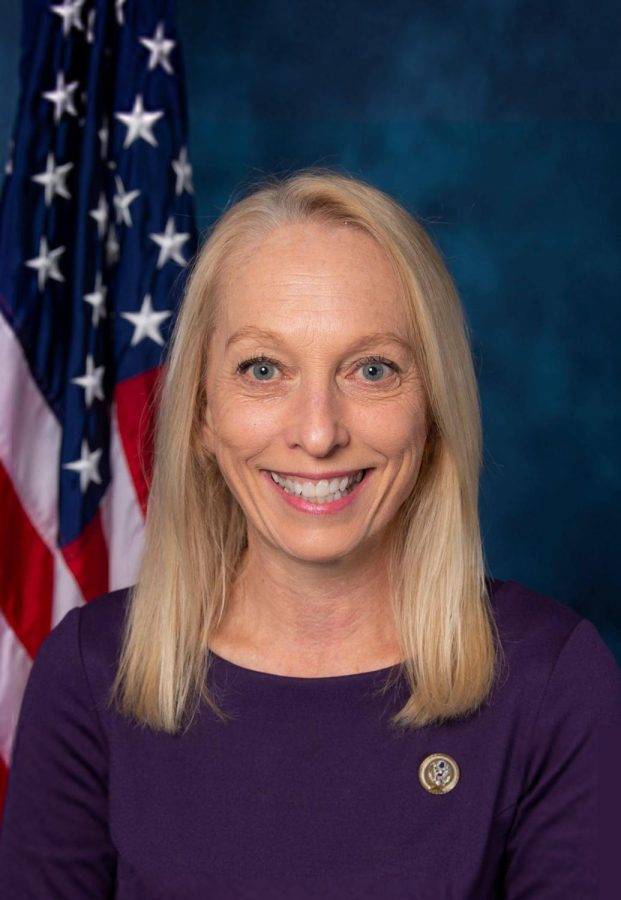Villanova’s Center for Irish Studies Hosts Congresswoman Mary Gay Scanlon
Congresswoman Scalon visited campus for an event.
March 29, 2023
Last week, Congresswoman of Pennsylvania’s 5th District Mary Gay Scanlon visited Villanova’s campus to hold a discussion with students regarding Irish Conflict and Peace. Scanlon strongly advocates for matters regarding Irish conflict and peace, as she recognizes herself as being of Irish heritage and has a commitment to supporting United States-Ireland relations. As a part of the Friends of Ireland Congressional Caucus, Scanlon has become involved in matters regarding this topic. The Friends of Ireland Caucus serves as a bipartisan congressional organization to support peace initiatives and reconciliation in Northern Ireland.
Professor of “Comparative and Irish Politics” Cera Murtagh welcomed Scanlon to express her views on Irish conflict and peace as an advocate for peace and democracy in Northern Ireland.
“It was a real pleasure to welcome Congresswoman Mary Gay Scanlon to my Irish Conflict and Peace class,” Mutagh said. “The U.S. has played a key role in the Northern Ireland peace process and that role has emerged as critical considering the UK’s departure from the European Union and the threat that has posed to the 1998 Good Friday Agreement.”
Scanlon recognizes 2023 as an eventful year for Irish American relations, especially following the annual St. Patrick’s Day events of this month and with the 25th anniversary of the Good Friday Agreement approaching in April. Amidst these developments, she pointed out the political meetings and events that have been taking place in Washington D.C this month between the Prime Minister of Ireland and different heads of American political parties. Scanlon made a visit to Ireland and the United Kingdom in 2022 to participate in meetings and discussions focused on strengthening transatlantic relations, deepening strategic partners and underscoring the significance of the Good Friday Agreement. She understands the United States’ role as a guarantor of peace and believes we must make effective use of America’s promises.
With the United Kingdom’s departure from the European Union and the threats it poses to the Good Friday Agreement, Scanlon recognizes the importance of addressing these issues and making the younger generation and college students aware of them.
“These conflicts in Ireland occurred over the course of my lifetime, going from bloodshed to relative peace and now it’s a threat again, and [now I feel I am] in a position to do something about it, under the rubric that this is an international process that has been solved by democratic processes as opposed to bloodshed,” Scanlon said.
Scanlon strongly believes in youth activism and encourages young people to advocate for matters they are passionate about.
“Congresswoman Scanlon has been central to U.S. efforts to protect the Good Friday Agreement in recent years as part of the Friends of Ireland caucus, including taking part in a congressional delegation to Brussels, London and Ireland last May,” Murtagh said. “Her class visit, coming off the back of her engagements with Irish political leaders in Washington DC last week, was inspiring and eye opening for my students. The Congresswoman’s insights – from Brexit to gender politics – really brought the issues we have been examining in class to life for the students and helped them see their connection to their own lives.”
Scanlon and Murtagh also recognize the gender component within the Good Friday Agreement and the Irish peace process. The Good Friday Agreement aimed to ensure peace after some 30 years of violence and conflict in Northern Ireland between nationalists and unionists. Despite a long history of political exclusion, the Good Friday Agreement served as a unique opportunity for the inclusion of women’s rights and equal representation in the post-conflict context of Northern Ireland.
“As a woman who has an interest in politics, it was very insightful to hear from Congresswoman Scanlon, a woman who holds such a powerful position of authority and leadership, all while remaining grounded in her push for inclusivity, advocacy and peace,” Villanova senior Ajée Robinson said.
“Congresswoman Scanlon was willing to be open and transparent about issues affecting both the U.S. and Ireland—from women in politics and the obstacles of female candidacy and support, international relations and the mutual advantages that the U.S. and Ireland share in maintaining peace in Ireland, and the pros and cons of quotas to meet various diversity thresholds in governance,” Robinson said. “Also, she was incredibly down to earth and made class very conversational, which helped all of us engage more.”
“Congresswoman Scanlon’s visit helped clarify for me the relationship between the U.S. and Ireland, as well as the U.S. and Northern Ireland, specifically regarding the U.S.’s key role in ensuring continued progression towards peace,” Villanova student Grace Lundell said. “Hearing about the [Scanlon’s] visit to the island last year as part of a congressional delegation shed light on the important and strong connections that still exist between U.S. politicians, specifically those belonging to the Irish diaspora, and politicians back in Ireland.”
Scanlon’s visit to campus was supported by Villanova’s Center for Irish Studies.


